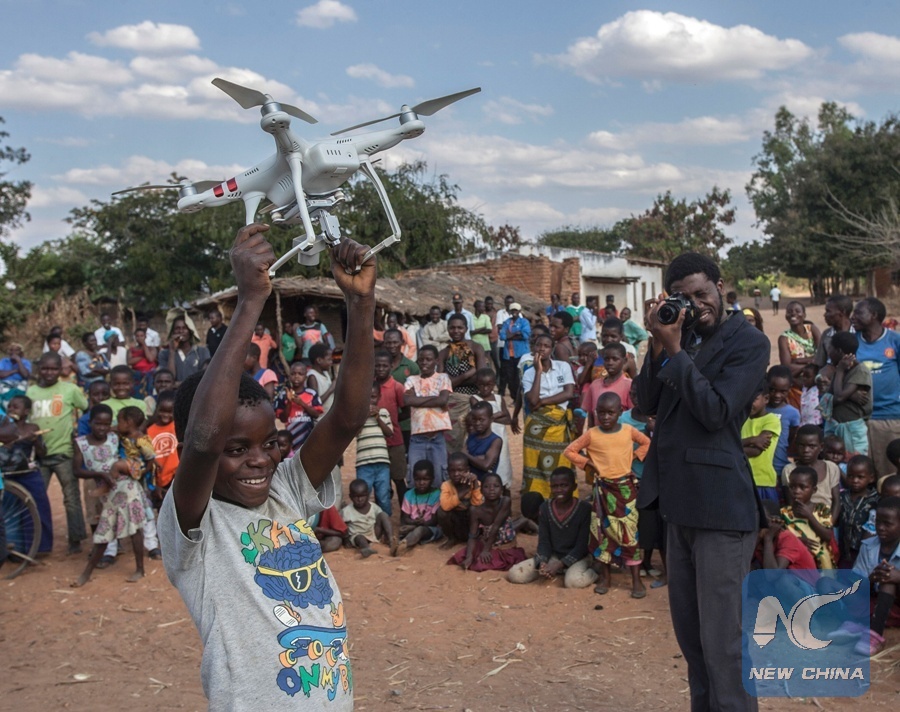
A child holds a drone during a drone awareness and safety demonstration on June 22, 2017, in regards to humanitarian drone corridor testing under the UNICEF-funded Humanitarian Drone Corridor testing project, in the hard-to-reach rural Chanthunthu Village Health Clinic in Kasungu. The government of Malawi is pilot testing the use of drones for humanitarian purposes in Kasungu District to see how the drones can be used for transporting blood and mucus samples for TB and HIV tests from hard-to -reach health centers to central laboratories of big hospitals in the country where they will be quickly tested. (AFP Photo)
UNITED NATIONS, Sept. 18 (Xinhua) -- Fewer people fell ill and died from tuberculosis (TB) in 2017 but countries are still not doing enough to end the world's deadliest infectious disease by 2030, a World Health Organization (WHO) report warned Monday.
In 2017, some 1.6 million people died from TB among about 10 million who developed the disease, according to the WHO's 2018 Global TB report released at UN Headquarters.
Notably, two thirds of the TB cases in 2017 occurred in eight countries, the top three being India, China and Indonesia.
The number of new cases is falling by 2 percent per year, the report showed, although faster reductions have occurred in Europe (5 percent per year) and Africa (4 percent per year), between 2013 and 2017.
Drug-resistant TB remains a global public health crisis, the report said, detailing in 2017, 558,000 people were estimated to have developed disease resistant to at least rifampicin -- the most effective first-line TB drug.
TB was among the communicable diseases that the UN's 2030 Agenda has set the goal to end by the year of 2030.
Also, the WHO End TB Strategy aims at a 90 percent reduction in the absolute number of TB deaths and an 80 percent decrease in TB incidence -- new cases per 100,000 population per year, compared with levels in 2015.
However, the current situation is off the track to meet these targets, warned WHO Director of Global TB Programme Tereza Kasaeva at the release of the report.
"The overall TB situation is still grim. It remains the world's leading infectious killer, claiming over 4,000 lives a day," she said.
She stressed if the world is to meet its goal by the deadline, better reporting mechanisms, wider treatment coverage and more research investment to make newer vaccine possible are needed.
"Increased financial resources and political commitment" are "fundamental to accelerate the progress," she added.
The report came out ahead of the UN General Assembly's first ever high-level meeting on TB scheduled for Sept. 26.
Japanese Ambassador to the UN Koro Bessho, one of the co-facilitators of the meeting, expressed hope that the meeting will achieve higher awareness of the world concerning the epidemic.
He said about 30 heads of states or governments are by far in attendance, and that some 100 countries will be represented, many of them at the ministerial level.
A political declaration is expected to be adopted at the meeting, addressing issues including health coverage, preventive treatment and financial mobilization, he said.

